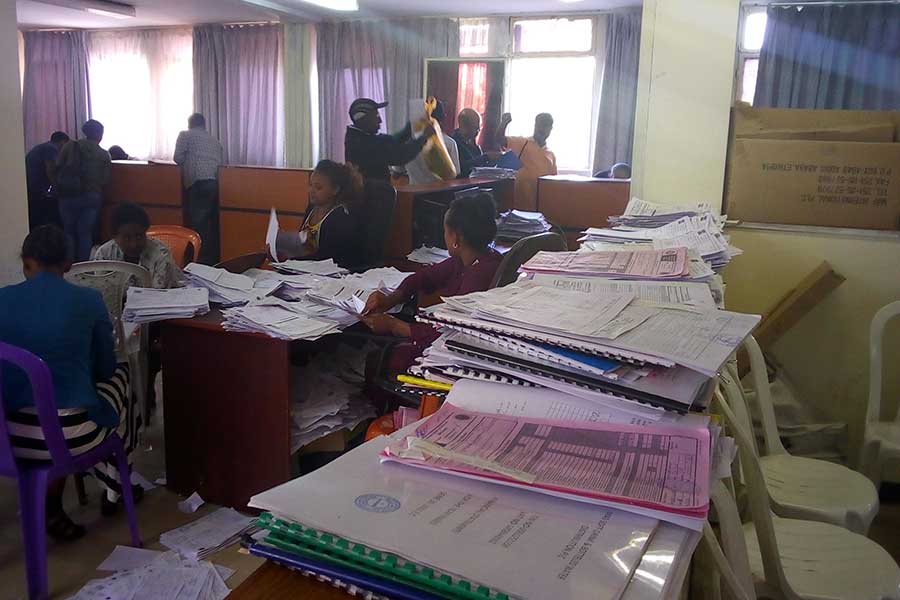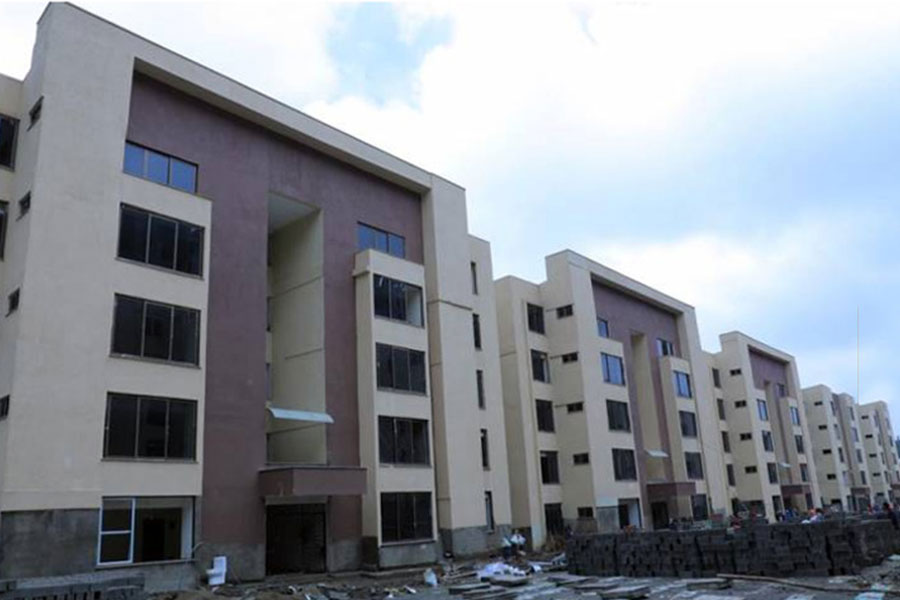
Featured | Nov 16,2019
Aug 18 , 2024
By Eden Sahle
A business owner recently shared a story about an employee with impressive academic credentials and experience on paper, yet who struggled to apply any of them in practice.
The hiring team had been excited about this recruit, who stood out among many qualified but inexperienced applicants. The employee's academic achievements and background initially impressed everyone. However, as time passed, it became clear that his skills did not match his resume. Frustrated and puzzled, they were forced to end the contract after a while.
We discussed the broader issue of declining educational quality in the country. The employer's description of a lack of knowledge in his legal field seemed almost unbelievable.
Curious, I checked the employee's LinkedIn profile, and to my surprise, discovered that he was a former neighbour I had known since childhood. His profile boasted multiple degrees from Addis Abeba University Law School, the same institution I attended. The experience listed seemed tailor-made to attract employers. But this man, who was 17 years older than me, was not a lawyer—he was a high school dropout. The last I knew of him, just a year ago, he had no formal education beyond that.
I had always known him as someone close to my family. He had practically raised me, and I had no idea he was capable of such deception. His family had moved abroad, but he stayed in Addis Abeba, keeping much about his life private. He usually asked me about the country's laws and showed a keen interest in legal matters, which brought us closer, especially after I graduated.
He even attended my wedding. Although I could not attend his recent wedding due to the birth of my child, I was shocked to learn that his wife knew him as a lawyer, not the high school dropout I knew him to be. The situation reminded me of the Netflix series “Suits,” except that he lacked the legal skills of the character in the show. After I confronted him about what I had learned, he immediately cut off all contact, removing me from his social media and distancing himself from my family.
This is not an isolated case. Fake academic credentials are a global issue, and Ethiopia is not immune. Academic certificate fabrication is a serious and ongoing problem, affecting both the public and private sectors. It is not only a reputational risk for institutions; but a substantial loss for a country in desperate need of skilled professionals. The societal and economic impacts are severe.
In my legal practice, I have encountered several cases where individuals falsified academic documents to work in critical fields like medicine and pharmaceuticals. These fraudsters operated for years, only being caught after making fatal errors. The full extent of the damage they caused can never be known.
The persistence of certificate forgery is exacerbated by a lack of digital systems that allow employers to verify academic credentials easily. Many academic institutions do not prioritise protecting their reputations, and corruption further fuels the problem. Without an efficient system for verifying documents, employers are discouraged from thoroughly checking academic qualifications.
Meanwhile, the sophistication of fraudulent documents makes it difficult for even regulatory bodies to distinguish them from authentic ones. This has led to widespread fraud, particularly in public institutions, where many individuals have been caught with fake credentials, though many more are likely operating undetected.
Experts agree that academic fraud has existed as long as education itself, but the problem has worsened in recent years. The growing prevalence of academic fraud poses a serious threat to society and economic growth. In a world driven by technology and innovation, having qualified professionals is crucial. Allowing unqualified individuals to occupy roles in both public and private sectors can lead to a failed job market and economy.
Academic fraud has far-reaching negative impacts, depriving skilled workers of opportunities and robbing the country of honesty, fairness, and accountability. These fraudulent individuals extend their criminal behaviour beyond fake documents, contributing to more corruption and incompetence.
Addressing it requires institutions to establish efficient systems for credential verification. Developing a robust digital system to verify graduates' details would encourage employers to validate documents and help combat academic fraud.
PUBLISHED ON
Aug 18,2024 [ VOL
25 , NO
1268]

Featured | Nov 16,2019

View From Arada | Nov 07,2020

Fortune News | Aug 17,2019

Fortune News | Jul 21,2024

Fortune News | Nov 02,2019

Radar | Dec 08,2024

Fortune News | Dec 05,2018

Fortune News | Jun 21,2025

Fortune News | Jun 01,2019

Fortune News | Apr 20,2019

Photo Gallery | 177741 Views | May 06,2019

Photo Gallery | 167952 Views | Apr 26,2019

Photo Gallery | 158644 Views | Oct 06,2021

My Opinion | 137001 Views | Aug 14,2021
Commentaries | Oct 25,2025

Dec 22 , 2024 . By TIZITA SHEWAFERAW
Charged with transforming colossal state-owned enterprises into modern and competitiv...

Aug 18 , 2024 . By AKSAH ITALO
Although predictable Yonas Zerihun's job in the ride-hailing service is not immune to...

Jul 28 , 2024 . By TIZITA SHEWAFERAW
Unhabitual, perhaps too many, Samuel Gebreyohannes, 38, used to occasionally enjoy a couple of beers at breakfast. However, he recently swit...

Jul 13 , 2024 . By AKSAH ITALO
Investors who rely on tractors, trucks, and field vehicles for commuting, transporting commodities, and f...

Oct 25 , 2025
The regulatory machinery is on overdrive. In only two years, no fewer than 35 new pro...

Oct 18 , 2025
The political establishment, notably the ruling party and its top brass, has become p...

Oct 11 , 2025
Ladislas Farago, a roving Associated Press (AP) correspondent, arrived in Ethiopia in...

Oct 4 , 2025
Eyob Tekalegn (PhD) had been in the Governor's chair for only weeks when, on Septembe...

Oct 25 , 2025 . By YITBAREK GETACHEW
Officials of the Addis Abeba's Education Bureau have embarked on an ambitious experim...

Oct 26 , 2025 . By YITBAREK GETACHEW
The federal government is making a landmark shift in its investment incentive regime...

Oct 27 , 2025
The National Bank of Ethiopia (NBE) is preparing to issue a directive that will funda...

Oct 26 , 2025 . By SURAFEL MULUGETA
A community of booksellers shadowing the Ethiopian National Theatre has been jolted b...